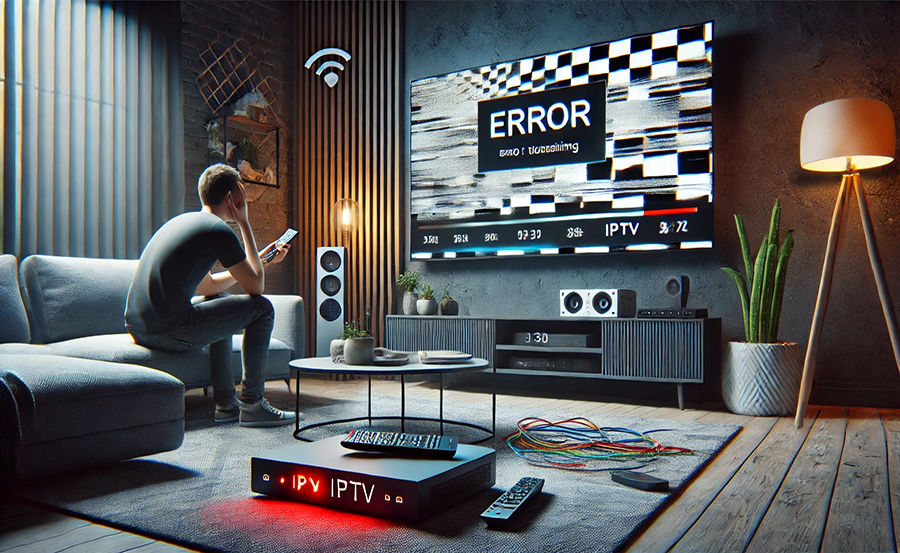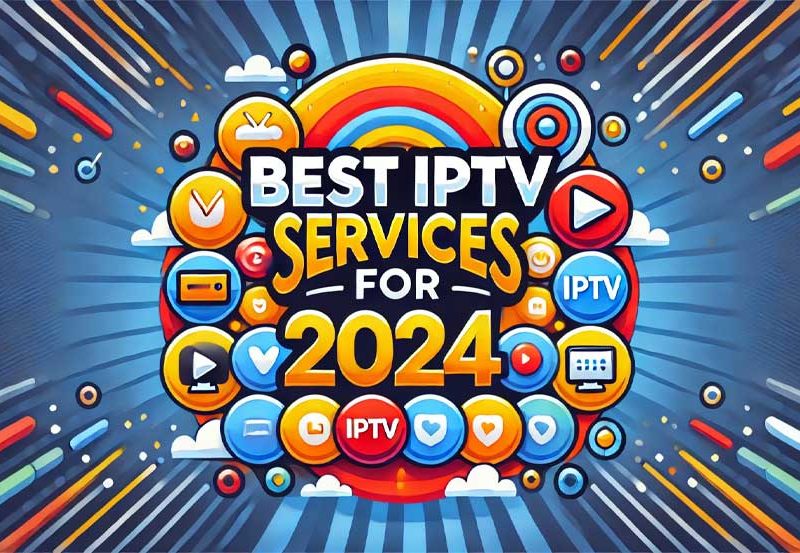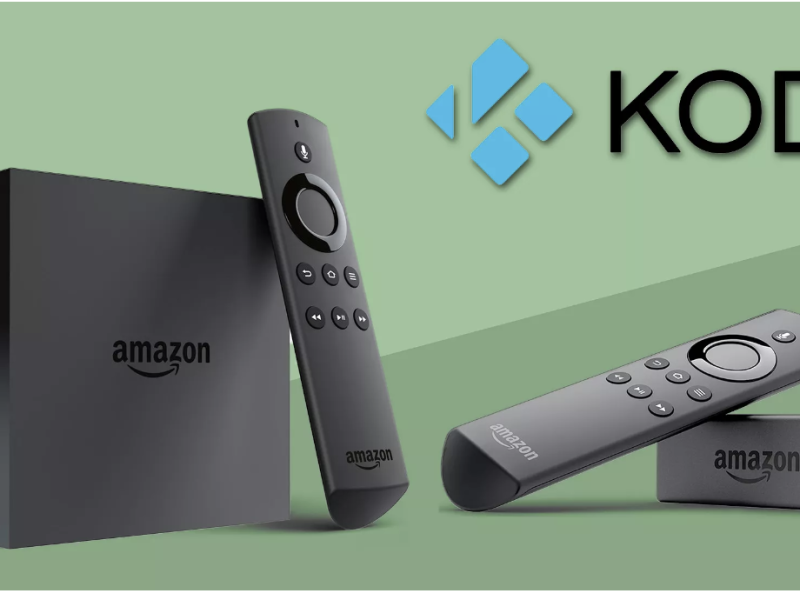Understanding and Overcoming Common IPTV Wi-Fi Interference Issues
As a modern solution to television viewing, Internet Protocol Television (IPTV) has surged in popularity. The convenience of accessing a multitude of channels and on-demand content through an internet connection is undeniable. However, this convenience often comes with its own set of challenges, specifically when it involves Wi-Fi interference.
The quality of your IPTV experience, especially if you’re seeking the Best IPTV for sports or exploring the Top IPTV services, can suffer considerably due to Wi-Fi complications. Understanding these issues is the first step in ensuring an elevated and uninterrupted IPTV journey. In this article, we explore the common Wi-Fi interference problems that affect IPTV users and offer practical solutions to enhance your viewing experience.
Buy 1 Year IPTV Subscription and Enjoy Unlimited Content
What Causes Wi-Fi Interference?
The Role of Network Congestion
Network congestion is a primary culprit when it comes to Wi-Fi interference impacting IPTV. With numerous devices connected to the same network, bandwidth gets stretched thin.
This can especially be problematic in households with multiple users streaming, gaming, or browsing simultaneously. The strains on the network can lead to buffering, lag, and a diminished IPTV experience.
Signal Obstructions: A Barrier to Quality Streaming
Physical obstacles like walls, furniture, or even large appliances can disrupt the Wi-Fi signal from your router to the IPTV device. These obstructions can cause signal degradation leading to connectivity issues.
A strategic placement of your router can mitigate some interference. Ensuring the router is elevated and centrally located can contribute significantly to signal strength and consistency.
Interference from Other Devices
Did you know your microwave or cordless phone might interfere with your IPTV signal? Many household devices operate on similar frequencies.
This overlap can cause interruptions or poor quality streaming if your Wi-Fi and other device frequencies clash.
Solutions to Overcome Wi-Fi Interference
Upgrading Your Wi-Fi Router
Older routers may not provide the necessary speed or stability required for a seamless IPTV experience. Investing in a modern, dual-band router could improve connectivity.
These routers offer greater compatibility with a variety of frequencies, which can prevent interference and provide a better IPTV viewing experience.
Managing Network Traffic
One method to alleviate network congestion is by prioritizing IPTV traffic over less critical devices. Many routers offer Quality of Service (QoS) settings that allow you to set traffic priorities.
By configuring these settings, your IPTV service gets the bandwidth it needs, ensuring smoother streaming without interruption.
- Identify and reduce the number of devices connected simultaneously.
- Schedule bandwidth-heavy activities like downloads for off-peak hours.
- Optimize router placement to reduce signal obstruction.
Switching to a Wired Connection
While Wi-Fi is convenient, a wired Ethernet connection is far more reliable for IPTV streaming. It eliminates the variables caused by wireless interference altogether.
Connecting your IPTV device directly to the router using an Ethernet cable can enhance streaming quality, providing a consistent and strong connection unaffected by environmental factors.
Additional Considerations for Optimizing IPTV Experience
Evaluating and Selecting the Best IPTV for Sports
Beyond technical Wi-Fi considerations, choosing the best service for your needs is crucial, especially for sports enthusiasts. Different IPTV services offer varied channel line-ups, reliability, and streaming quality.
Investing time to evaluate the top IPTV services can make a significant difference in how you enjoy your favorite sports. Consider user reviews, channel offerings, and device compatibility when selecting a service.
Enhancing Your IPTV Equipment
Outdated IPTV devices might not efficiently handle high-speed internet or modern encoding, leading to subpar performance. Regular upgrades or software updates to your IPTV hardware can provide better performance.
Newer IPTV boxes often come with improved features and support the latest video compression standards, thus making them more adept at handling various streaming requirements.
How to Diagnose and Fix IPTV Picture Quality Problems
A Closer Look at Diverse Streaming Needs
Understanding Viewing Habits and Preferences
Your internet needs vary depending on the number of users and their specific requirements. Not everyone in a household may have the same viewing habits.
Understanding and addressing these needs will help manage bandwidth more effectively and enhance everyone’s IPTV experience.
Tailoring Solutions to Specific Issues
No solution is a one-size-fits-all when addressing IPTV Wi-Fi interference. You may need to adopt multiple strategies to tackle the problem comprehensively.
By combining suggested methods, such as upgrading hardware and managing network traffic wisely, you can significantly improve your IPTV journey.
FAQs on Solving IPTV Wi-Fi Interference Issues

What should I do if my IPTV service keeps buffering?
Consider checking your internet speed and reducing the number of devices connected. Utilizing QoS settings on your router can also prioritize your IPTV device for smoother streaming.
How can I tell if household devices are interfering with my Wi-Fi?
If you notice a drop in performance during specific times or while using certain devices, they might be interfering with your Wi-Fi. Testing connection quality in their absence can confirm this.
What’s the advantage of a dual-band router for IPTV?
A dual-band router can operate over both 2.4GHz and 5GHz frequencies, reducing traffic congestion and avoiding interference from other household electronics, thus improving IPTV streaming.
Are there any affordable ways to boost my Wi-Fi signal?
Yes, using Wi-Fi extenders, optimizing router placement, and switching to a less crowded frequency channel can effectively boost your Wi-Fi signal without considerable expense.
Can a wired connection solve all interference issues for IPTV?
While it significantly reduces wireless interference, other factors like service provider performance and IPTV box capabilities still play a crucial role in your streaming experience.
Is it necessary to upgrade my IPTV device and router simultaneously?
It’s not mandatory, but upgrading them together can ensure that both devices are compatible, utilizing the latest technologies and standards for optimal performance.
How do I choose the right IPTV service for my needs?
Evaluate your content preferences, device compatibility, and budget. Looking into user testimonials, service reviews, and trial offers can guide you in selecting a service tailor-fit for your needs.
While IPTV and Wi-Fi can sometimes be finicky partners, understanding the root of these interference issues and applying appropriate solutions ensures that your IPTV setup operates at its best. Whether you’re chasing the best IPTV for sports or choosing from the top IPTV services available, addressing Wi-Fi interference issues directly will significantly elevate your IPTV viewing journey.
Exploring the Benefits of IPTV Television for Cord-Cutters




